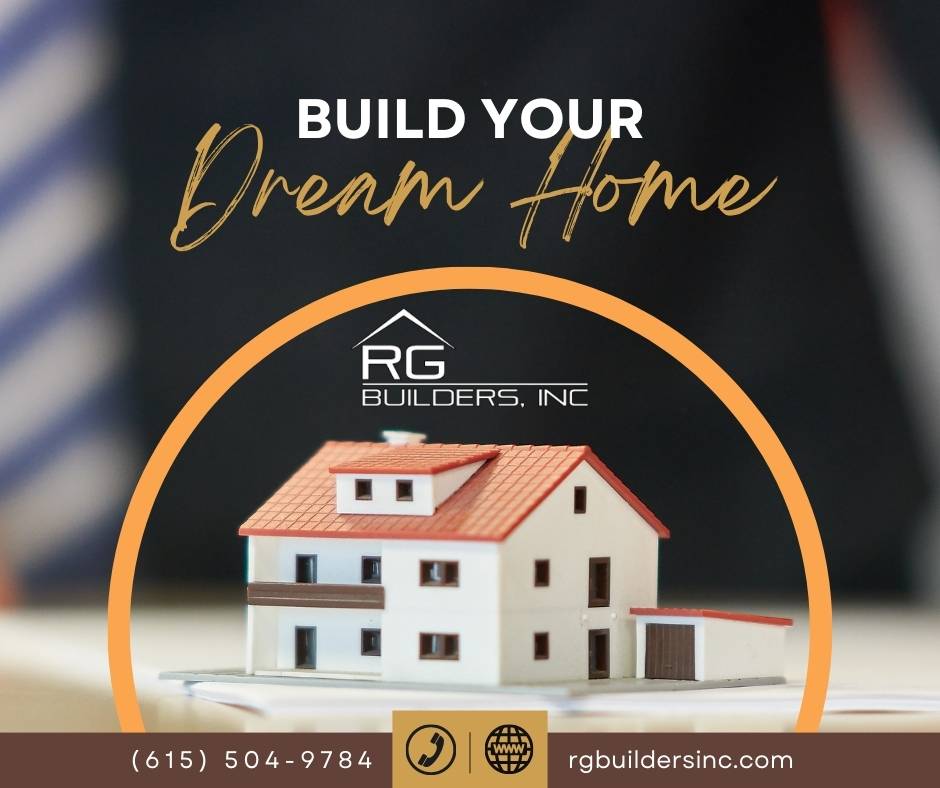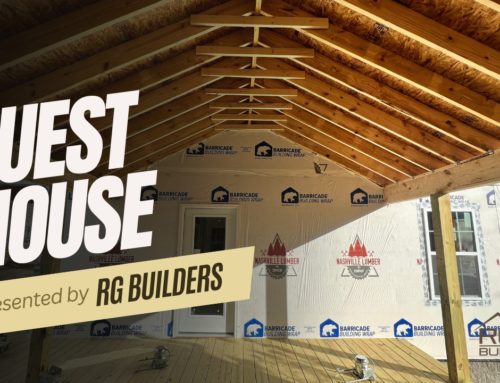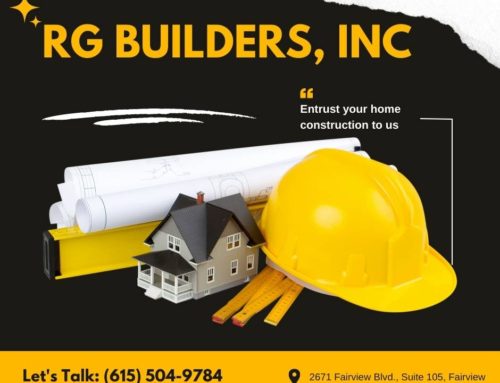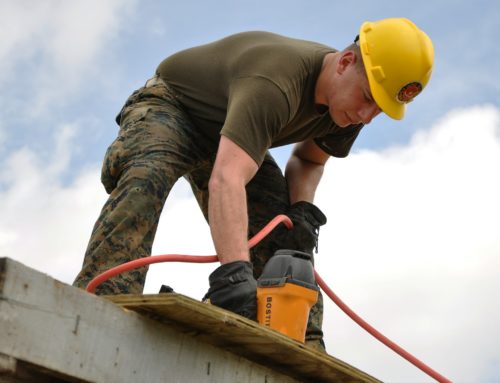Home Builder Construction Company
You can use our construction calculator to estimate the cost of building a house in Tennessee.
RG Builders’ office is in Fairview, TN, and serves all of Middle Tennessee. We frequently serve clients in the following counties;
Williamson
Davidson
Cheatham
Dickson
Hickman
Maury
New Home Build Calculator
Guide to Estimating the Cost of Building a House in Tennessee
Building a house in Tennessee can be an exciting yet overwhelming endeavor. Whether you’re a first-time homeowner or looking to upgrade, accurately estimating the cost is crucial for effective planning. However, with numerous factors to consider, such as materials, labor, permits, and unforeseen expenses, it can be challenging to know where to begin.
In this guide, we’ll walk you through the process of estimating the cost of building a house in Tennessee. From understanding the average construction costs to evaluating the impact of design choices on the overall budget, we’ve got you covered. We’ll explore the various factors that influence the price, such as the size and style of the house, and provide tips on saving money without compromising quality.
Whether you’re looking to build a cozy cottage or a spacious mansion, this guide will equip you with the knowledge and tools you need for cost estimation.
Factors that affect the cost of building a house in Tennessee
Several factors significantly impact the overall cost of building a house in Tennessee. Understanding these factors is crucial for developing an accurate budget and avoiding unexpected expenses.
One of the primary factors is the location of the home. The land, utilities, and labor costs vary greatly depending on the region within Tennessee. For instance, building a house in an area like Nashville may be more expensive than constructing a home in a smaller town like Fairview, TN. The proximity to amenities, such as schools, shopping centers, and transportation hubs, also influences the cost.
Another important factor is the size and complexity of the home design. Larger homes with more square footage, multiple stories, and intricate architectural features will generally cost more than smaller, simpler designs. Choosing building materials, such as high-end finishes, custom cabinetry, and specialized fixtures, significantly impacts the budget.
The availability and cost of skilled labor in the local market significantly affect the overall construction cost. Areas with a high demand for construction workers experience higher labor costs, which drive up the project’s overall price. Additionally, the timeline of the construction process, including any delays or unexpected challenges, affects the final cost.
Understanding the different types of costs involved in building a house
Building a house in Tennessee has several costs, each with its variables and potential expenses. Accurately identifying and estimating these costs is crucial for developing a comprehensive budget.
The first and most obvious cost is the land acquisition. The price of the land can vary greatly depending on the location, size, and any existing features or improvements. In addition to the land cost, there may be expenses associated with site preparation, such as clearing, grading, and excavation work.
The next major cost category is the construction itself, which includes the materials and labor required to build the home. This encompasses everything from the foundation and framing to the roofing, plumbing, and electrical work. The choice of building materials, the complexity of the design, and the local labor market can all significantly impact these costs.
Permits and fees are another important consideration when building a house in Tennessee. These can include building permits, zoning approvals, and various inspection fees. The specific requirements and costs can vary depending on the local jurisdiction and the project’s complexity.
Lastly, additional costs can often arise during the construction process, such as unexpected site conditions, changes in the design, or unforeseen expenses. It’s essential to account for a contingency budget to cover these potential surprises and ensure the project stays on track.
Estimating the cost of land and site preparation
Land costs are often among the most significant expenses when building a house in Tennessee. The price per acre varies widely depending on the location.
When estimating the cost of land, factors such as the size of the lot, the topography, and any existing features or improvements must be considered. For example, a flat, cleared lot may be less expensive than a heavily wooded or sloped property that requires extensive site preparation.
In addition to the land cost, site preparation expenses significantly impact the overall budget. These may include tasks such as clearing the land, grading the site, excavating for the foundation, and installing utilities (water, sewer, electricity, etc.). The specific requirements and costs can vary depending on the local regulations and the unique characteristics of the property.
To accurately estimate the cost of land and site preparation, it’s recommended to work closely with a local real estate agent or a professional land surveyor. They provide valuable insights into the current market conditions and any potential challenges or hidden costs associated with the property. Consulting with a construction contractor, such as RG Builders, helps you understand the site preparation work required and the associated costs.
Estimating the cost of materials and labor
The cost of materials and labor is the largest component of the overall budget when building a house in Tennessee. This category includes everything from the foundation and framing to the roofing, siding, and interior finishes.
The cost of building materials varies significantly depending on the type, quality, and quantity required. For example, high-end hardwood flooring or custom-made cabinetry will be more expensive than standard laminate or prefabricated options. Researching and comparing prices from multiple suppliers is essential to get the best value for your money.
The cost of labor has a significant impact on the overall budget. The hourly rates for skilled tradespeople, such as electricians, plumbers, and carpenters, can vary depending on the local market and the complexity of the work. Additionally, the availability of skilled labor in the area can affect the cost, as high demand may drive up prices.
It’s recommended that you work closely with us to estimate the cost of materials and labor needed for your project. We provide detailed breakdowns of the materials and labor required for each phase of the construction process and any associated costs. This provides you with a budget and identifies potential areas for cost savings.
Additional costs to consider when building a house in Tennessee
While the cost of land, materials, and labor are the primary drivers of the overall budget when building a house in Tennessee, additional expenses should be factored into the planning process.
One of the most significant additional costs is the permitting and inspection fees required by local authorities. These can include building permits, zoning approvals, and various inspection fees throughout the construction process. The specific requirements and costs can vary depending on the local jurisdiction and the project’s complexity.
Another important consideration is the cost of utilities, such as connecting the home to the electrical grid, water, and sewer systems. Depending on the property’s location, these connection fees can be substantial and should be included in the budget.
Additionally, homeowners will want to consider the cost of landscaping, including grading, planting, and irrigation systems. While these expenses are often overlooked, they can significantly impact the budget, especially for larger properties or homes with elaborate landscaping designs.
Finally, unexpected costs can often arise during the construction process, such as unforeseen site conditions, design changes, or material shortages. To account for these potential surprises and ensure the project stays on track, it’s essential to include a contingency budget, typically between 10% and 20% of the total project cost.
Tips for saving money on building a house in Tennessee
Building a house in Tennessee can be a significant financial investment, but there are several strategies homeowners can employ to save money without compromising the quality or functionality of the home.
One of the most effective ways to save money is to carefully plan and design the home. By working closely with an architect or designer, homeowners can optimize the floor plan, minimize wasted space, and make informed decisions about the materials and finishes. This can help reduce the overall square footage and the associated construction costs.
Another way to save money is to consider alternative building materials or methods. For example, exploring more affordable options for finishes, such as laminate countertops or engineered hardwood floors, can help reduce the overall material costs.
Finally, taking advantage of any available tax credits, rebates, or incentives can help offset the cost of building a house in Tennessee. These may include energy-efficiency programs, first-time homebuyer initiatives, or local government-sponsored incentives. Researching and taking advantage of these opportunities can help stretch the construction budget.
Hiring a contractor and obtaining quotes
When building a house in Tennessee, hiring the right contractor is crucial for ensuring the project’s success and staying within the budget. Selecting a contractor and obtaining accurate quotes can be daunting, but there are several strategies homeowners can employ to make the process smoother.
RG Builders is a licensed and insured local expert with an extensive portfolio of homes built in the area.
Tools and resources for estimating the cost of building a house
When estimating the cost of building a house in Tennessee, you can use our free homebuilder calculator to get a general idea of your budget.
Building a house in Tennessee can be an exciting and rewarding experience, but it’s essential to approach the process with a clear understanding of the various factors that can impact the overall cost. By considering the location, size, and complexity of the home design, as well as the availability of skilled labor and the cost of materials, homeowners can develop a realistic budget and avoid unexpected expenses.
Additionally, it’s crucial to account for the various costs involved, including land acquisition, site preparation, permitting and fees, and potential contingencies. By proactively planning and budgeting for these expenses, homeowners can increase their chances of a successful and stress-free construction process.
To maximize the value of their investment, homeowners should also explore strategies for saving money, such as careful planning and design, considering alternative building materials and methods, and taking advantage of available tax credits and incentives. Additionally, hiring a reputable and experienced contractor and utilizing the various tools and resources available can help ensure that the cost of building a house in Tennessee is accurately estimated and managed.
By following the guidance and insights provided in this comprehensive guide, homeowners in Tennessee can embark on their homebuilding journey with confidence, knowing that they have the knowledge and tools necessary to make informed decisions and achieve their dream of a beautiful, custom-built home.









